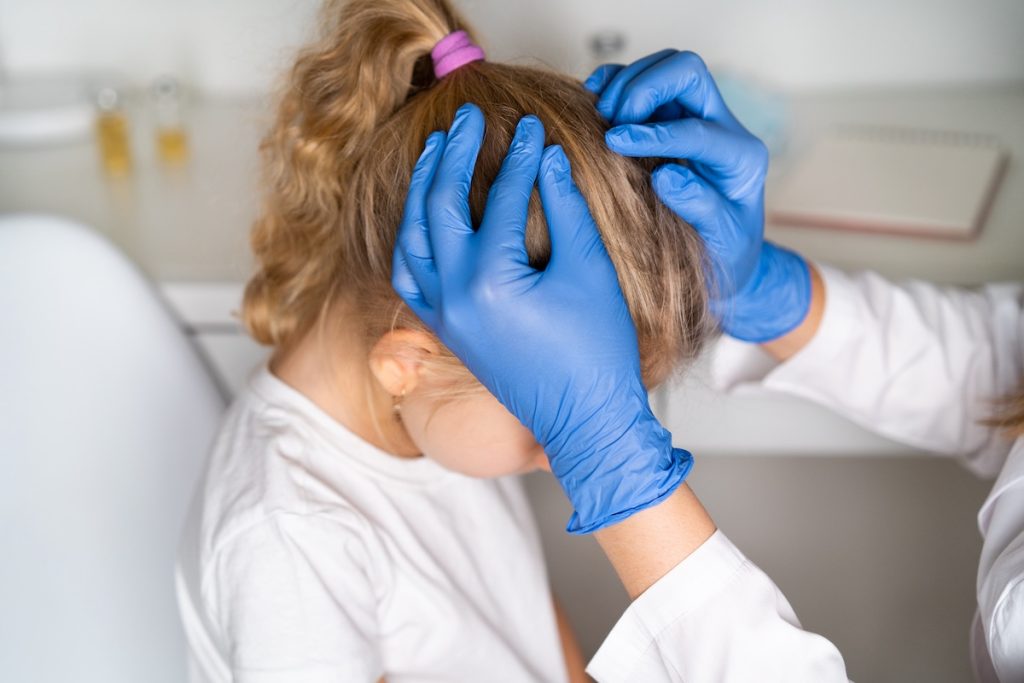Is It Ringworm? Recognizing the Signs of Tinea Capitis

Tinea capitis—often called ringworm of the scalp—is a contagious fungal infection that affects both the scalp and hair shafts. Despite the name, no worms are involved; the condition is caused by dermatophyte fungi that thrive on skin and hair. It often begins with subtle symptoms that can resemble common scalp issues like dandruff or dry skin, making early identification important.
Tinea capitis can lead to patchy hair loss, scaling, and discomfort, especially in children, and typically requires prescription treatment for full resolution. At Dermatology Associates of Plymouth Meeting, we offer accurate diagnosis and effective care to help restore scalp health and prevent further spread.
Signs and Symptoms to Look For
Tinea capitis often starts with subtle symptoms and can be mistaken for dandruff or dry scalp. As the condition progresses, the following signs may become more noticeable:
- Round, scaly patches on the scalp
- Itching or tenderness in the affected areas
- Fragile or broken hairs near the scalp
- Hair loss in circular patterns
- Swollen lymph nodes in the neck (in some cases)
- A boggy, inflamed mass called a kerion, which may ooze or crust over
These symptoms vary depending on the type of fungus involved and the individual’s immune response. Without treatment, the condition may worsen and lead to more significant hair loss or secondary infections.
How It Spreads
Tinea capitis is contagious and spreads through direct skin-to-skin contact, sharing of personal items (like combs, hats, or towels), or contact with contaminated surfaces. It can also spread from pets to humans, particularly if animals carry the fungus on their skin or fur.
Classroom and daycare environments are common places for transmission, making early recognition and treatment especially important in school-aged children.
Diagnosis by Our Dermatology Team
Diagnosing tinea capitis requires a careful evaluation by a board-certified dermatologist. While the symptoms may appear similar to other scalp conditions, confirmation through visual examination and testing helps ensure the correct treatment is used.
Diagnostic methods may include:
- Wood’s lamp examination – A special light that can highlight certain fungal infections.
- Microscopic exam or fungal culture – Samples of hair or scalp debris may be analyzed in a lab.
At our practice, we emphasize accurate diagnosis as the foundation for effective care. This helps reduce the risk of misdiagnosis and ensures targeted treatment.
Treatment Options
Unlike some other skin fungal infections, tinea capitis usually requires oral antifungal medication because topical treatments alone cannot penetrate the hair follicles. Common prescription treatments include:
- Griseofulvin
- Terbinafine
- Itraconazole
- Fluconazole
In some cases, a topical antifungal shampoo may be recommended alongside oral medication to reduce surface transmission and prevent spread to others.
A typical course of treatment lasts 6 to 8 weeks, depending on the severity of the infection and the specific medication used.
Supporting Scalp Health During Recovery
While medication treats the infection, supportive care can help keep the scalp comfortable and reduce further irritation:
- Use a gentle, non-medicated shampoo unless directed otherwise.
- Avoid scratching, as this can lead to bacterial infections.
- Keep the scalp clean and dry, and avoid sharing personal hair tools or headwear.
It’s also helpful to clean and disinfect hairbrushes, pillowcases, and any shared surfaces or accessories to prevent reinfection or spread within the household.
Why Prompt Care Matters
If left untreated, tinea capitis can lead to persistent hair loss or scarring in more severe cases. Early intervention supports quicker resolution and reduces the risk of complications. It also helps prevent spreading the infection to others—something especially important in shared living or learning environments.
Don’t Wait—We’re Here to Help
Scalp conditions like tinea capitis can be uncomfortable, contagious, and difficult to recognize without professional guidance. If you or your child is experiencing patchy hair loss, scalp scaling, or persistent itching, scheduling an appointment is the best next step.
At Dermatology Associates of Plymouth Meeting, our experienced team offers expert diagnosis and personalized treatment to resolve the infection and support long-term scalp health. We’re here to help you find relief and feel like yourself again.
